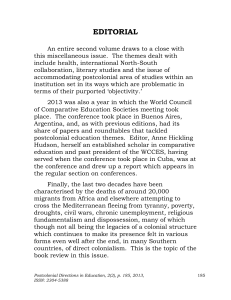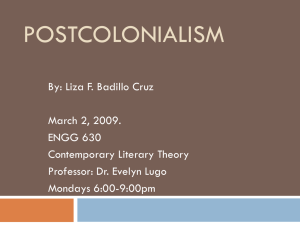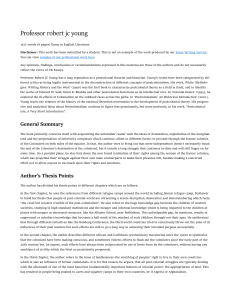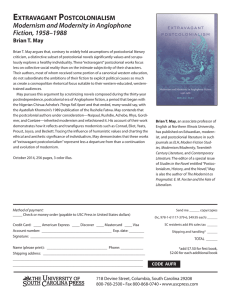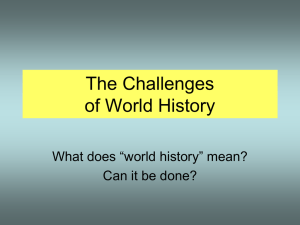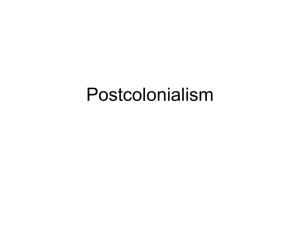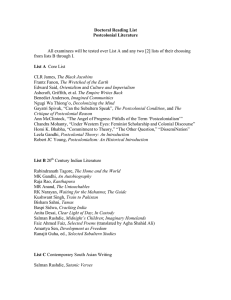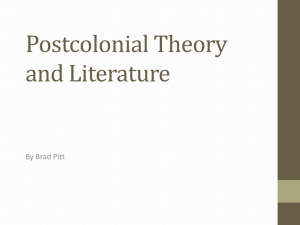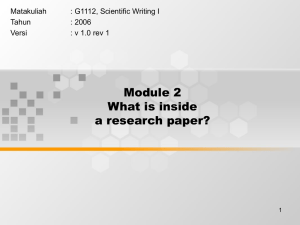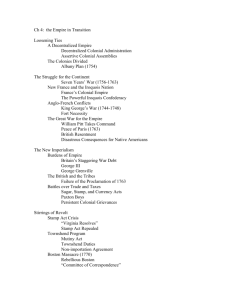IED 448 (01) Postcolonial Literature
advertisement
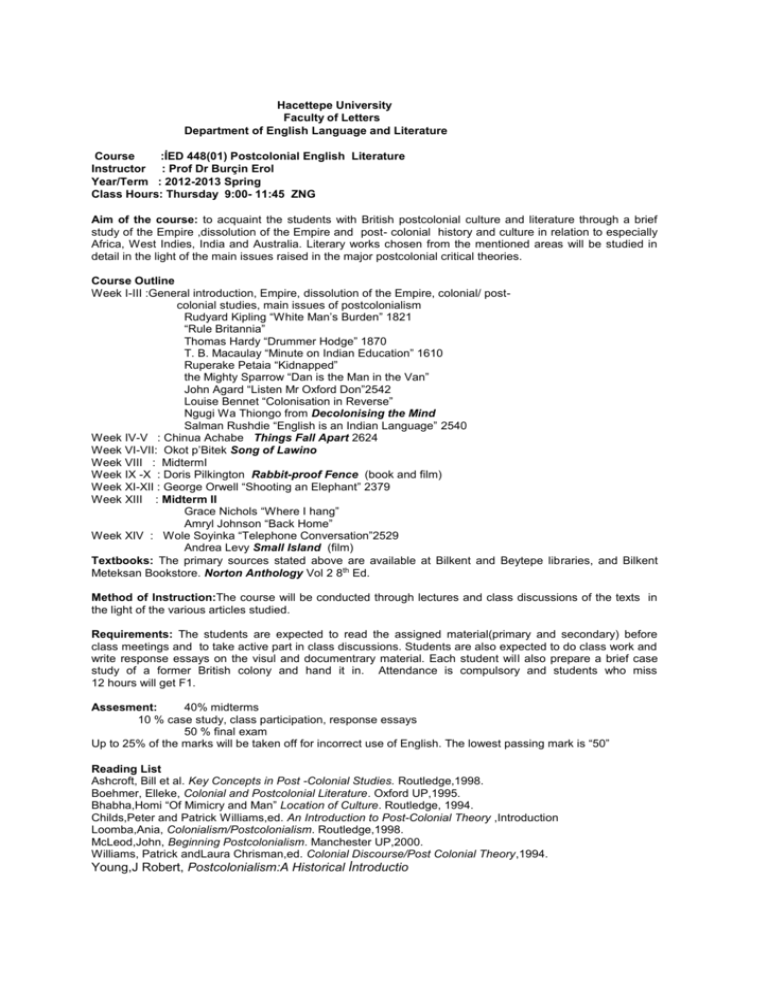
Hacettepe University Faculty of Letters Department of English Language and Literature Course :İED 448(01) Postcolonial English Literature Instructor : Prof Dr Burçin Erol Year/Term : 2012-2013 Spring Class Hours: Thursday 9:00- 11:45 ZNG Aim of the course: to acquaint the students with British postcolonial culture and literature through a brief study of the Empire ,dissolution of the Empire and post- colonial history and culture in relation to especially Africa, West Indies, India and Australia. Literary works chosen from the mentioned areas will be studied in detail in the light of the main issues raised in the major postcolonial critical theories. Course Outline Week I-III :General introduction, Empire, dissolution of the Empire, colonial/ postcolonial studies, main issues of postcolonialism Rudyard Kipling “White Man’s Burden” 1821 “Rule Britannia” Thomas Hardy “Drummer Hodge” 1870 T. B. Macaulay “Minute on Indian Education” 1610 Ruperake Petaia “Kidnapped” the Mighty Sparrow “Dan is the Man in the Van” John Agard “Listen Mr Oxford Don”2542 Louise Bennet “Colonisation in Reverse” Ngugi Wa Thiongo from Decolonising the Mind Salman Rushdie “English is an Indian Language” 2540 Week IV-V : Chinua Achabe Things Fall Apart 2624 Week VI-VII: Okot p’Bitek Song of Lawino Week VIII : MidtermI Week IX -X : Doris Pilkington Rabbit-proof Fence (book and film) Week XI-XII : George Orwell “Shooting an Elephant” 2379 Week XIII : Midterm II Grace Nichols “Where I hang” Amryl Johnson “Back Home” Week XIV : Wole Soyinka “Telephone Conversation”2529 Andrea Levy Small Island (film) Textbooks: The primary sources stated above are available at Bilkent and Beytepe libraries, and Bilkent Meteksan Bookstore. Norton Anthology Vol 2 8th Ed. Method of Instruction:The course will be conducted through lectures and class discussions of the texts in the light of the various articles studied. Requirements: The students are expected to read the assigned material(primary and secondary) before class meetings and to take active part in class discussions. Students are also expected to do class work and write response essays on the visul and documentrary material. Each student will also prepare a brief case study of a former British colony and hand it in. Attendance is compulsory and students who miss 12 hours will get F1. Assesment: 40% midterms 10 % case study, class participation, response essays 50 % final exam Up to 25% of the marks will be taken off for incorrect use of English. The lowest passing mark is “50” Reading List Ashcroft, Bill et al. Key Concepts in Post -Colonial Studies. Routledge,1998. Boehmer, Elleke, Colonial and Postcolonial Literature. Oxford UP,1995. Bhabha,Homi “Of Mimicry and Man” Location of Culture. Routledge, 1994. Childs,Peter and Patrick Williams,ed. An Introduction to Post-Colonial Theory ,Introduction Loomba,Ania, Colonialism/Postcolonialism. Routledge,1998. McLeod,John, Beginning Postcolonialism. Manchester UP,2000. Williams, Patrick andLaura Chrisman,ed. Colonial Discourse/Post Colonial Theory,1994. Young,J Robert, Postcolonialism:A Historical İntroductio
